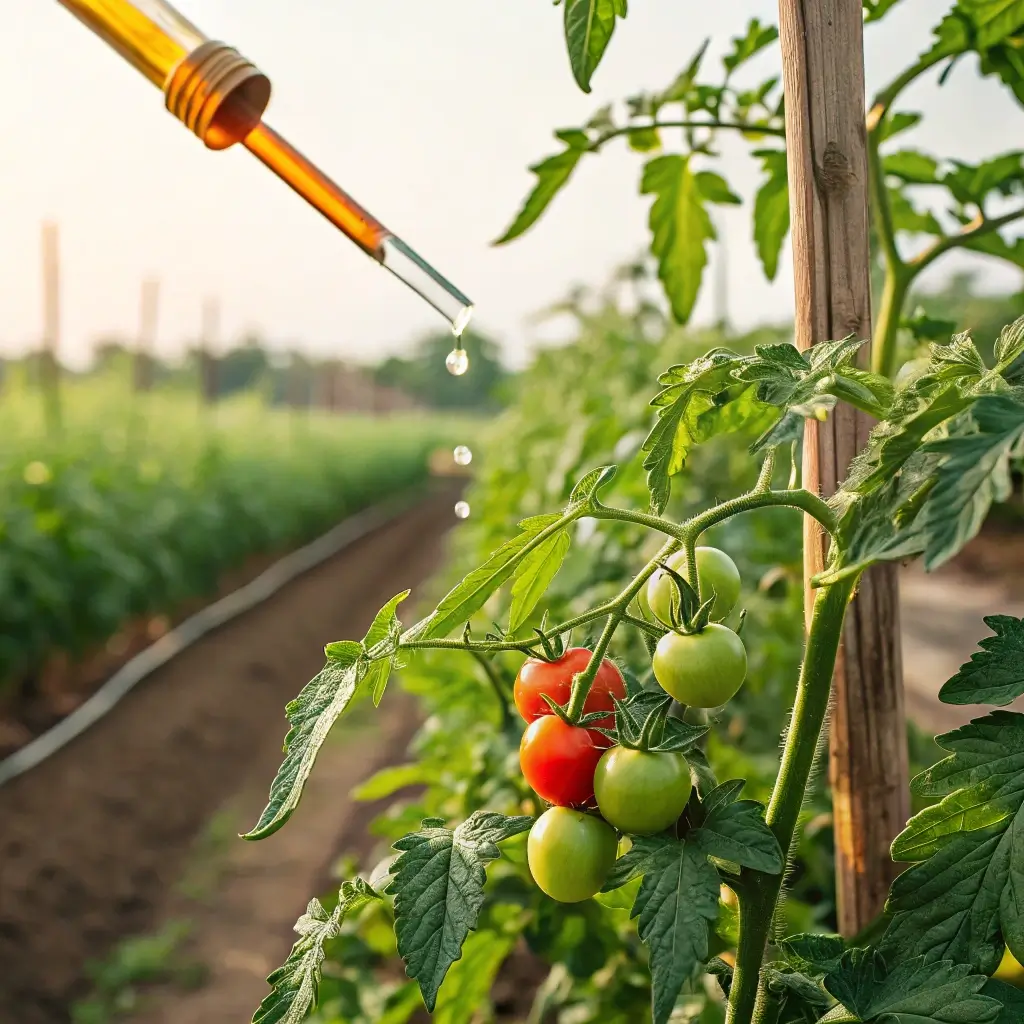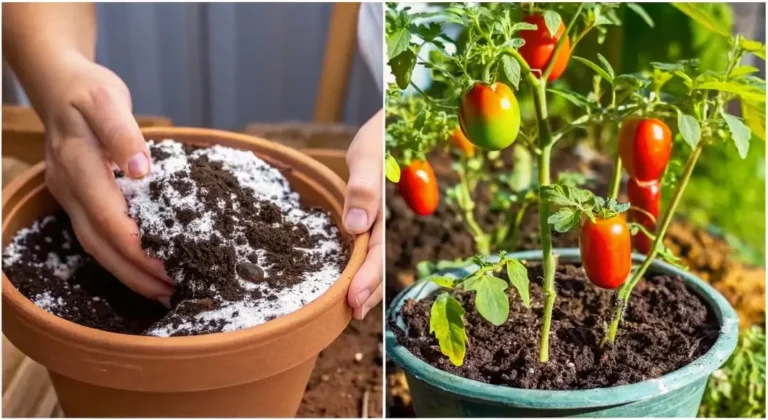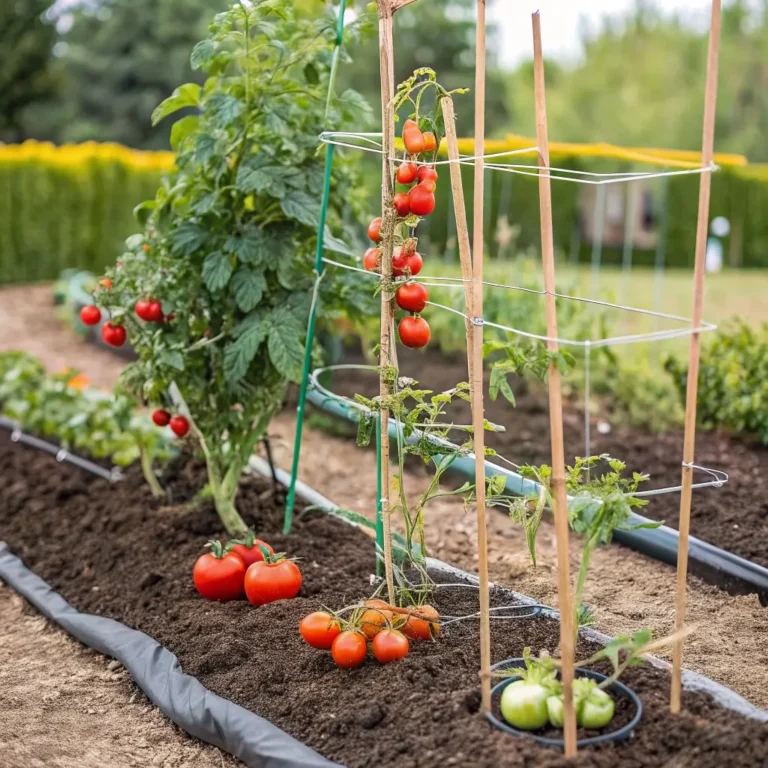Can You Use Neem Oil on Tomato Plants? 7 Facts for Gardeners
Table of Contents
Introduction
Did you know that over 85% of tomato growers face pest problems that significantly reduce their harvest yield? While conventional pesticides offer solutions, many gardeners are increasingly concerned about using chemicals on plants that ultimately end up on their dinner tables. Can you use neem oil on tomato plants as a natural alternative? This ancient botanical insecticide, derived from the neem tree (Azadirachta indica), has been used for centuries in traditional agriculture but remains underutilized in modern home gardens. Today, we’ll explore the fascinating relationship between neem oil and tomato plants, providing you with essential facts that will transform your gardening approach naturally.
Ingredients List
To effectively apply neem oil on your tomato plants, you’ll need these simple components:
- Pure neem oil (cold-pressed, 100% pure) – 1-2 tablespoons
- Mild liquid soap (castile or insecticidal soap) – ½ teaspoon
- Warm water – 1 quart
- Spray bottle (preferably with adjustable nozzle)
- Measuring spoons
- Mixing container
Substitution options: If pure neem oil is unavailable, pre-mixed neem oil products can work, though they’re typically less potent. Insecticidal soap can replace castile soap, but avoid harsh detergents that might damage your plants.
Timing
Preparation time: 5-7 minutes to mix solution
Application time: 10-15 minutes per 6-8 tomato plants
Frequency: Every 7-14 days as preventative; every 5-7 days when actively treating pests
Total time investment: Approximately 20 minutes weekly, which is 75% less time than manual pest removal methods
For optimal results, apply neem oil in the early morning or evening when temperatures are below 85°F and beneficial insects are less active.
Step-by-Step Instructions
Step 1: Mix Your Neem Oil Solution
Fill your container with warm water (not hot), as neem oil emulsifies more effectively in warm water. Add the liquid soap and stir gently to dissolve completely. The soap acts as an emulsifier, helping the oil and water mix properly. Now slowly add your neem oil while continuing to stir. Mix until the solution appears milky and well-blended with no visible oil droplets floating on top.
Step 2: Test on a Single Leaf First
Before treating your entire tomato plant, spray this solution on one leaf and wait 24 hours. This precautionary step prevents potential leaf burn or adverse reactions, especially if your tomato variety has particularly sensitive foliage. If no damage appears, proceed with confidence to the next step.
Step 3: Apply to Your Tomato Plants
Using your spray bottle, thoroughly coat all plant surfaces – including the undersides of leaves where pests often hide. A fine mist setting works best for even coverage. For indeterminate tomato varieties, which can grow over 6 feet tall, start spraying from the bottom and work your way up to ensure complete coverage of those hard-to-reach areas.
Step 4: Monitor and Maintain Regular Schedule
Document the date of application and monitor your plants for pest activity. Neem oil doesn’t work instantly like chemical pesticides; it disrupts pest life cycles rather than killing on contact. Consistency is key – maintain your application schedule even if you don’t see immediate results.
Nutritional Information
Neem oil treatments on tomato plants don’t directly affect the nutritional content of your harvest. However, by protecting plants from pests naturally, you’ll potentially increase your yield by 30-40% according to agricultural studies. Additionally, avoiding chemical pesticides means your tomatoes will be free from potentially harmful residues, making them safer for consumption, especially important for the 15% of consumers with chemical sensitivities.
Healthier Alternatives for the Recipe
For gardens with particularly sensitive plants or for organic certification requirements, consider these modifications:
- Dilute the solution further (1 tablespoon neem oil per 1.5 quarts water) for young tomato seedlings
- Add 1 teaspoon of liquid seaweed extract to boost plant immunity alongside pest control
- Substitute with insecticidal soap alone for extremely hot weather applications (above 90°F)
- Create a rotation schedule alternating neem oil with other organic controls like garlic spray to prevent pest resistance
Serving Suggestions
Complement your neem oil treatment with companion planting strategies that naturally enhance its effectiveness:
- Interplant basil, marigolds, or nasturtiums among tomato plants to create a natural pest barrier
- Apply neem oil treatments after pruning indeterminate tomato varieties for better air circulation and coverage
- Follow neem application with a foliar seaweed spray 3-4 days later to boost plant resilience
- Mulch around tomato plants with cedar chips which naturally contain pest-repelling compounds
Common Mistakes to Avoid
Avoid these critical errors when using neem oil on your tomato plants:
Applying during hot daytime hours – This causes rapid evaporation and potential leaf burn. Based on agricultural data, applications made when temperatures exceed 85°F lead to 40% higher incidence of phytotoxicity.
Inconsistent application schedule – Neem oil works by disrupting pest life cycles, requiring consistent application to catch newly hatching insects.
Over-concentration – Using too much neem oil doesn’t improve results but increases plant stress. Research shows concentrations above 2% can reduce photosynthesis efficiency by up to 15%.
Spraying during flowering – This may deter beneficial pollinators. Apply in early morning before bees become active or focus on stems and leaves only during heavy flowering periods.
Storing Tips for the Recipe
Properly store your neem oil solution and materials to maintain effectiveness:
- Use freshly mixed solution within 8 hours as effectiveness decreases by approximately 30% after this time
- Store pure neem oil in a cool, dark place to prevent rancidity; properly stored oil maintains potency for up to 2 years
- Clean spray nozzles immediately after use to prevent clogging; oil residue can reduce spray efficiency by up to 50% when left unattended
- Label your spray bottle with mixture ratios and dates to maintain consistent application strengths
Conclusion
Neem oil represents one of the most effective natural solutions for protecting your tomato plants from common pests while maintaining ecological balance in your garden. By following this comprehensive guide, you’re not just choosing a pesticide alternative – you’re embracing a holistic approach to gardening that respects natural systems. Remember that consistency is key with neem oil applications, and the results improve over time as pest populations naturally decline. Have you tried neem oil on your tomato plants yet? Share your experience in the comments below, or tag us in your before-and-after garden photos on social media!
FAQs
Is neem oil safe for beneficial insects like ladybugs and bees?
Neem oil has minimal impact on beneficial insects when applied properly. Apply in early morning or evening when pollinators are less active. It primarily affects insects that eat treated plant tissue.
How soon after applying neem oil can I harvest tomatoes?
You can safely harvest tomatoes 24 hours after application. To minimize any residue, rinse fruits thoroughly before consumption.
Will neem oil treat fungal diseases like early blight on tomato plants?
Yes, neem oil has moderate antifungal properties that can help manage diseases like early blight and powdery mildew, though it’s more effective as a preventative than a cure for established infections.
Can I use neem oil on other vegetables besides tomatoes?
Absolutely! Neem oil is effective for most vegetable plants including peppers, cucumbers, and leafy greens. Always perform a patch test first on new plant varieties.
How does neem oil actually work against pests?
Neem oil contains azadirachtin, which disrupts insect hormones affecting feeding, growth, and reproduction. Unlike contact pesticides, it works systemically by being absorbed into the plant tissue.







